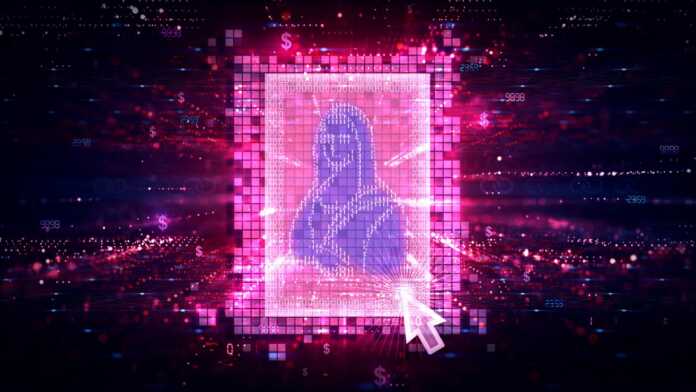This year, Ars Electronica took place again in person after the pandemic break – a tour of the electronic art festival in Austria.
Table of Contents
After two years dominated by the pandemic, this year the Ars Electronica Festival almost returned to its former glory and fullness with 71,000 visitors and 953 artists, scientists and students from 76 countries. Linz also seemed to have shaken off the corona fears, even on the tram you could only see a few faces wearing masks. What the pandemic left behind for the festival is not only negative, on the contrary. Forming the Gardens in 2020 is proving to be a smart move.
“Missing Link”
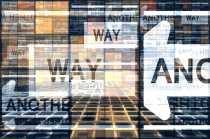
What is missing: In the fast-paced world of technology, there is often the time to re-sort all the news and background information. At the weekend we want to take it, follow the side paths away from the current, try different perspectives and make nuances audible.
-
More on the features section “Missing Link”
Back when the festival was canceled as an on-site event, the organizers encouraged smaller festivals around the world. 120 cities participated and some of the local organizations started to flourish. At this year’s festival, a separate exhibition is dedicated to these garden cooperations, fourteen garden partners from cities such as Novi Sad, Taipei, Auckland and Utrecht present art projects from their surroundings.
A multitude of individual initiatives
The Gardens are just one of many groups integrated into the festival. The most important is probably the EU Commission’s S+T+ARTS initiative (Science + Technology + Arts), which, viewed in the light of day, is a festival within a festival, with its own prizes, exhibition and conference. It is certainly the intellectual and organizational power of the festival that discourages the EU from contemplating a competing event. From the large number of individual initiatives bundled by the ARS, only the most important can be named. For example, the Art University on Linz’s main square, which in turn is presenting aspiring artists from almost thirty countries in its rooms this year. Or the Lentos Museum, which shows excerpts from the collection of the Cifo Foundation (cisneros fontanals art foundation) and thus offers a stage for media art in South America.
Of course, there is also the OK, the open culture house in Upper Austria, which provides insight into the beginnings of interactive art. Or the Festival University with 200 students from 70 countries, the CyberArts exhibition (winner of the Golden Nica), the create your world experiment festival for young visitors, the various exhibitions in the Ars Electronica Center or, or, or – diverse and confusing how as ever, this year’s Ars Electronica Festival presents itself. The Johannes Kepler University, on whose campus the festival has been taking place for several years, must not be forgotten.
The three historical phases of Ars Electronica
Despite all the changes, the festival ship is steered by a very constant crew through the turbulent times. Above all Gerfried Stocker, who, first as artistic director and later as managing director, keeps the festival on course with his network and his ideas. Again and again he comes back to the original idea, namely to bring art, technology (or optionally science) together and to use this synergy to show perspectives for society. He emphasizes that it is always important to bring this idea closer to young people.
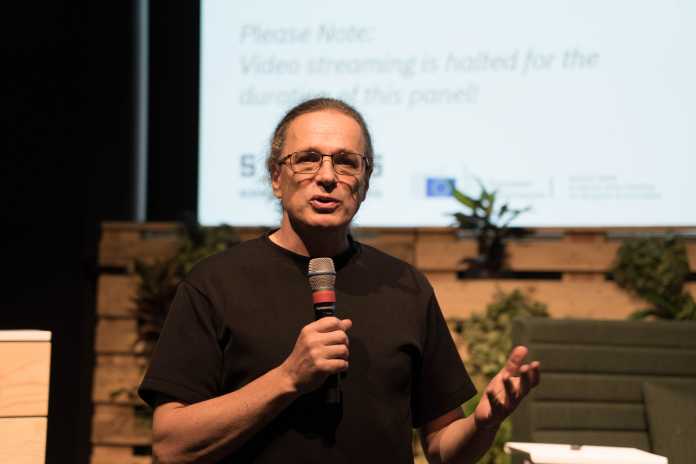
(Image: Dorothea Cremer-Schacht)
The festival is in the process of developing into a platform, he states matter-of-factly and thus marks a structural change. There is also a substantive one. Three phases can be distinguished in the more than forty-year history of the Ars. In the first few years, the joy of trying out and conquering the digital space dominated. The confrontation with the consequences of the new technologies followed, especially in view of the realization of how quickly “Big Business” took up the ideas of the pioneers, who saw themselves more as rebels, and converted them into profitable business models. The third phase is more actionistic and shaped by the desire to change society.
Welcome to Planet B. A different life is possible. But how?
This year’s festival motto addresses the mega-topic of our time. With all the crises of the last few years, which have been superseding each other at an ever faster pace, the question of sustainability is the great constant, in a way the most lasting. Even if you don’t appreciate every shrill scaremongering by climate activists, you should take the topic seriously. But where is the solution? Not in technology, the program booklet suggests, but in people. We must change.
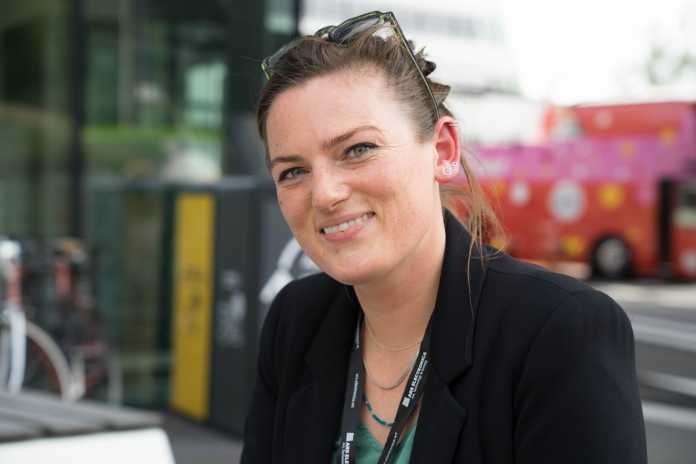
(Image: Dorothea Cremer-Schacht)
Christel Baur, who curated the themed exhibition “Studio(dys)Topia – At the Peak of Humankind”, agrees. But she dismisses the idea that the solution lies in cold water and washcloths. Rather, she brings the ecological footprint into play and tells how the festival organization strives to minimize its footprint. She is aware that contracts with Ars service providers that oblige them to operate sustainably can under no circumstances compensate for the CO₂ emissions caused by the travel and accommodation of thousands of festival participants and guests. But she is certain that the effect of the festival will ultimately compensate for this “climate damage”. Otherwise she would get out, she emphasizes.
change of perspective
With the motto “At the Peak of Humankind” the event finds it difficult. After the peak, things naturally go downhill and the festival should by no means send a negative message. It’s better to stick to the very well chosen Planet B idea: We put ourselves in the future in which the climate crisis has been overcome and ask retrospectively how it came about. A productive change of perspective.
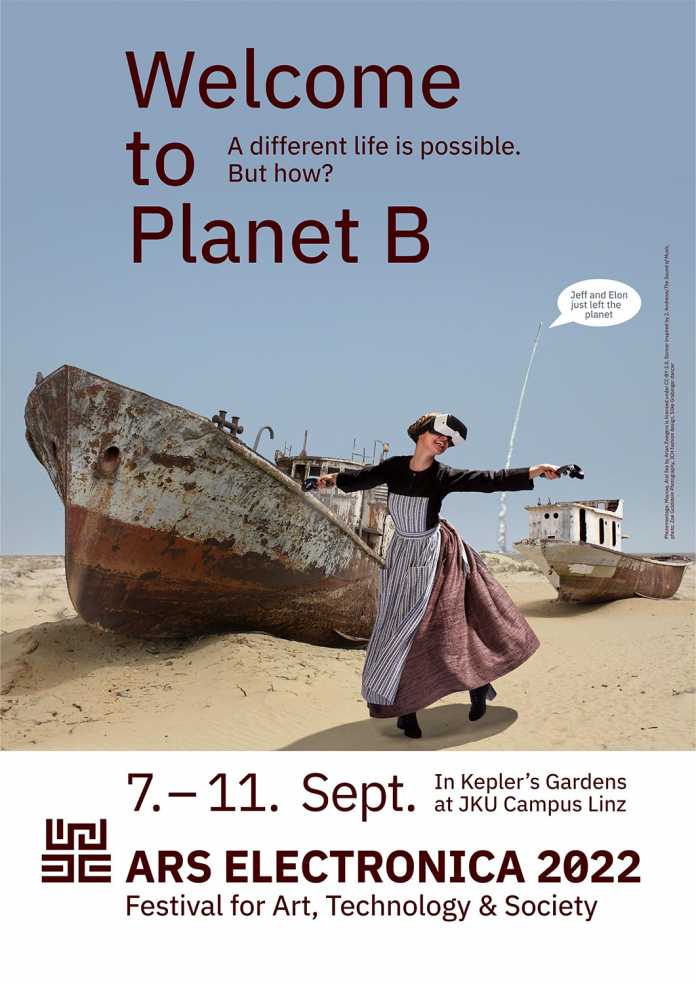
(Image: ARS)
The politicians, who get their platform at the opening ceremony and present all levels of power, from the city councilor to the federal president, also use the stage to highlight their successes in combating climate change. Not everyone in the audience seems to agree with the statements, which is reflected in the occasional boo. But overall, the relationship between politics and the festival seems clarified, you need each other and benefit from each other, each in their own way.
Gerfried Stocker acts beyond the stage and personally orchestrates the multimedia sequence of the music and video performances at the mixing desk, in which the speeches are embedded. Stefan Zweig’s two stories about Maggelan’s circumnavigation of the world and Cyrus W. Field’s laying of the first undersea cable from Europe to the New World look back to a time when technical progress did not yet have dystopian connotations.


